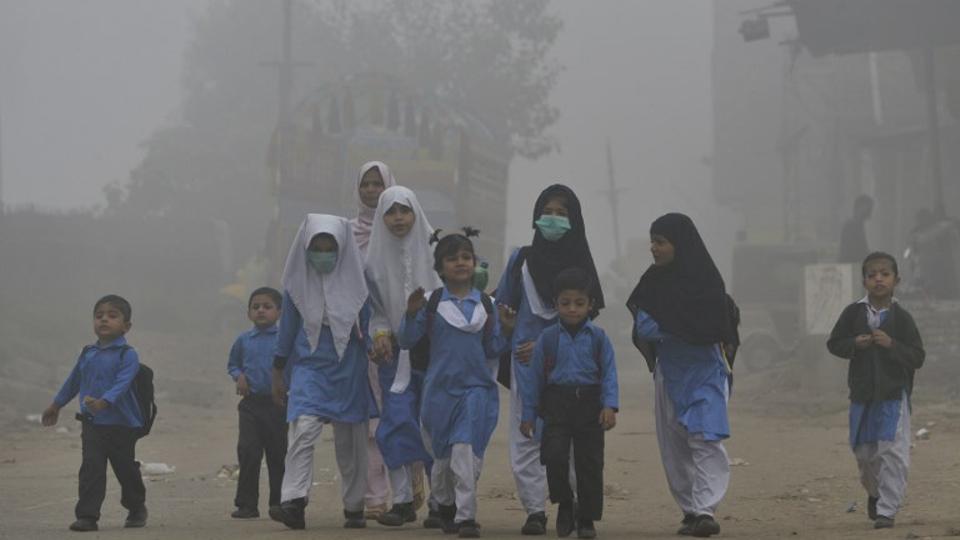Climate change, a term often confused with global warming is not a foreign or novel concept for this world. As the world accumulated by political, economic and social turmoil the climate change is most often neglected by world leaders and governments. It holds as much importance in the world of crises as any other contemporary issue hurling the world peace and security
Climate change is the change in the average climatic conditions as temperatures and rain falls in a region over a long period of time. Most of United States was covered in glaciers 20,000 years ago as predicted by scientist, but today it has become a relatively warmer region. On the other hand, global climate change means the average long-term changes over the entire surface of earth. Earth’s climate has continuously been changing long before the humans even came into the picture.
Climate change and global warming comes hand in hand. They are mostly taken as synonyms but they are two different terms. The term climate change is used by scientists to describe the complex shifts in climate which affect our planet. Global warming is used merely to refer to the rising temperatures of the planet Earth.
On the contrary, climate change not only encapsulates rising temperatures but also extreme weather events. These may include shifting wildlife populations and habitats, rising seas, and a range of other impacts. All of these changes are occurring due to the constant addition of heat-trapping greenhouse gases by humans.
Several alarming impacts of climate change have been shared globally by different research organizations. Ice is melting globally, specifically at the earth’s poles. It includes the mountain glaciers and ice sheets covering West Antarctica, Greenland and Arctic sea ice. The number of glaciers has declined to less than 30 from 150 in Montana’s Glacier National Park. This melting ice is also contributing to the sea-levels rise. Global sea-levels are rising 0.13 inches per year and the rise has been happening swiftly in the recent years
Rising temperatures are highly affecting the wildlife and their natural habitats. As temperatures continue to grow, many species are on the move. Butterflies, foxes and some Alpine plants have migrated farther north or to higher and cooler regions. Due to climate change, precipitation has also increased across the globe on the average.
It results in some regions are experiencing more severe drought, lost crops, fresh water shortages and increased risks of wild fires. Some dangerous species like mosquitoes, crop pests and bark beetles are booming which are destructive for forest areas.
The year 2020 has seen a surge in the wild fires across the globe because of climate change. Wild fires are becoming one of the most common and vexed consequences of climate change for the world. Australia recently has competed with its largest bushfire. Parts of Arctic, the Amazon and Central Asia have also experienced unusually severe fires. The US states of California, Oregon and Washington have also seen a spike in large wildfires in 2020.
Pakistan’s situation is no different. In its latest climate risk report, the German watch think tank ranked Pakistan as the seventh most vulnerable country to climate change. Pakistan has witnessed a number of floods in the past several years and stressfully long periods of drought which are the result of climate change. The rains last for a shorter period of time in Pakistan which does not contribute to increment in ground water level. So climate change is causing longer spells of drought due to Pakistan’s water scarcity problem.
Climate change can aggravate the drought situation in future by further declining the water levels. If glaciers continue to melt, the water source from glaciers and ice melt will decrease. Climate change will also affect the monsoon pattern. The higher temperatures across the country will demand more water which will eventually lead to more droughts.
The severe rainfalls in Pakistan in the month of August 2020 claimed more than 100 lives and caused widespread property and infrastructure damages. The economic hub of Pakistan; Karachi was the worst affected city by rainfalls. Both commercial and residential areas were completely drowned in water with power outages that lasted for days.
Climate scientists have warned that Pakistan has become highly vulnerable to effects of climate change specifically sea intrusion, unusual rain patterns, melting glaciers, rising temperatures and drought. The Arabian Sea has been heating up with an average temperature increase from 29 degrees Celsius to 31 degrees Celsius in just the past two years. This has affected Indus River Delta the most because of the sea intrusions which directly affects people’s livelihoods who live around the ports.
Recently, the federal government has been trying to deal with climate change with several projects including the plantation of 1 billion trees, electric mobility campaigns and awareness campaigns to reduce greenhouse gas emissions.
The government has planned to plant 1 billion trees in order to clean up the environment. They have also been making efforts to promote electric energy and mobility to reduce gas omissions and improve the air quality. Some environmentalists have expressed their concerns on the imported plants being used for the 1 billion projects and the lack of assessment of these plants by the government.
With the COVID-19 surging once again in Pakistan, the government is yet to face another effect of climate change which strikes Punjab. It happens every year around October-November and that is smog. Smog is majorly caused by the burning of leftovers of crops by farmers to prepare land for the upcoming farming season.
Pakistan also blame Indian farmers of upper Punjab for the smog in Lahore every year saying that the direction of wind blows in such a direction as to cause an inflow of dust particles from India to Pakistan. A case filed in Lahore High Court recently has drawn attention to the problem before it surges in the region.
It is too early for Pakistanis to start removing masks because they are to face a severe impact of climate change in the form of smog which is just around the corner. The risk of COVID-19 still lingers on the country. The government needs to take effective measures against the impacts of climate change. Best the nation faces another challenge while the previous one has not left them yet.

The author is doing M. Phil in Public Policy and Governance. He is working as a freelancer. Previously worked with HubPages and Washington Post.
